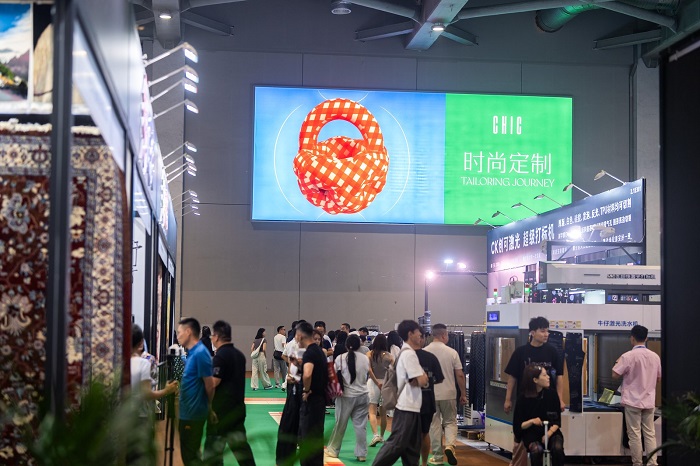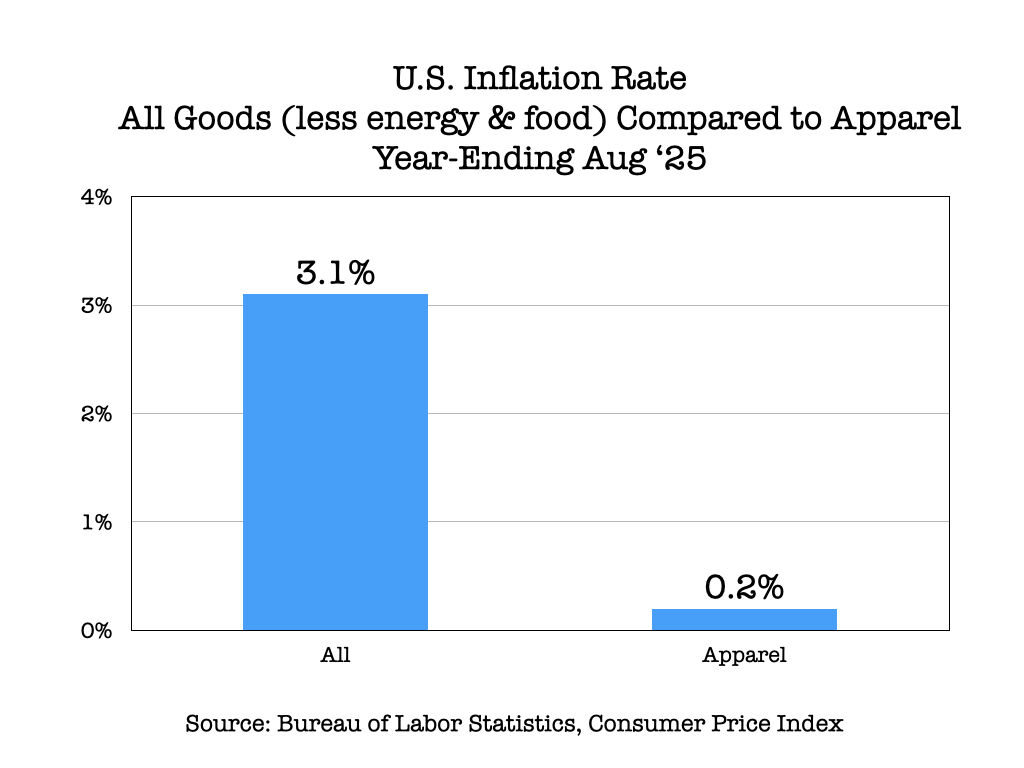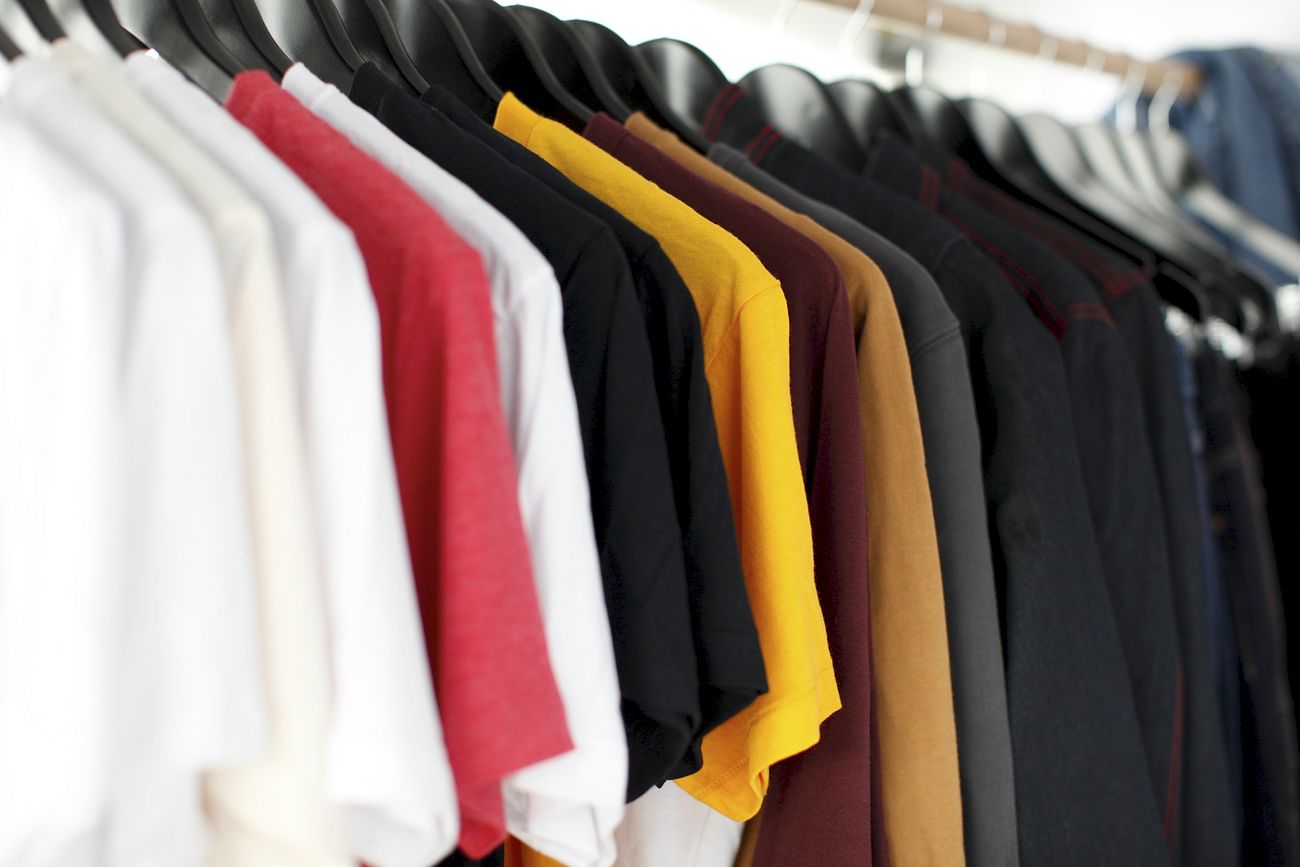FW
Madhya Pradesh has emerged as a hub of textile industry of the country in the last one decade due to the industry-friendly policy of the State government. This is what Minister for Commerce, Industry, Employment, Mineral Resources and Overseas Indians Rajendra Shukla said recently. He said that the State has a bank of around one thousand acre in all the districts to establish industries.
A special policy is being brought soon to encourage garment industry in the State. The minister was addressing the 14th International and 72nd All India Textile Conference. More than 300 representative of textile industry are taking part in the conference at Bhopal.
Shukla mentioned that Madhya Pradesh is progressing rapidly. It has no more a bimaru State now and has come in the category of the developed State. He further mentioned that all the facilities are available in the State to establish industry. Electricity, water, transport and other facilities like good roads are available. Moreover, sufficient land is available.
Besides, Shukla said that the State Government is working with full steam and commitment in the leadership of the Chief Minister Shivraj Singh Chouhan for the development of the State and to maintain the status of developed State.
Shukla mentioned that factories of well-known groups like Vardhman, Trident, Nahar, SEL Group, Raymond and Grasim are functioning successfully in the State. An amount of around Rs 7 thousand crore has been invested in the textile sector and 40,000 persons have got employment in last 6 years.
Textile projects worth Rs 4,000 will be established in the State soon. He told that the biggest 750 megawatt solar power plant of the world is being established at Rewa. An amount of Rs 6,000 crore will be invested in this plant. White Tiger Safari has been made in Mukundpur of Rewa, he added.
US president Donald Trump’s thought of a possible 20 per cent tax on US imports from Mexico is raising eyebrows in Asia where exports to the US drive growth in many economies. Japanese officials are of the say that they hoped to hold talks on trade with US officials soon. Finance Minister Taro Aso said the Japanese side should thoroughly explain how Japanese companies have been contributing to American society, including creating jobs.
Trump's press secretary Sean Spicer said the 20 per cent tax was among several options to finance building a wall along the US southern border, but no decision has yet been taken. In the light of the event, Mexican President Enrique Pena Nieto has scrapped his scheduled trip to Washington next week over the issue. He has flatly rejected Trump's assertion that Mexico will pay for the wall on its border.
China's official Xinhua News Agency reported that Trump was considering the 20 per cent tariffs without any editorial comment. However, the report cited unnamed analysts saying Trump would have to withdraw the US from the North American Free Trade Agreement or Nafta, to be able to impose such a tax. Mr Trump has said he wants to renegotiate Nafta.
A steep tariff on exports from Mexico to the US may have a telling effect on manufacturers like Toyota Motor Corp, which like almost all other automakers builds small cars in Mexico to take advantage of its lower wages. Along with other Japanese automakers, Toyota employs thousands of people at factories in the US. It also is planning to build a plant in Mexico to make the popular Corolla sub compact.
If you have been thinking of revamping your wardrobe this Spring Summer, you ought to check upon your wallet. It is being said that the introduction of GST (Goods and Service Tax) in the ensuing budget may be instrumental in the rise of branded apparels.
If industry veterans are to be believed, there would be rise of between 3 to 4 per cent in the prices of readymade apparels and other finished textile products. As of now, textile industry pays tax between 8to 9 per cent. However introduction of GST may escalate this tax by almost 12 per cent. If not the government will start following the 18 per cent tax rate which will make the prices more dearer. According to industry experts, they are expecting a tax of 12 per cent GST. But the duties they would now be paying at the manufacturers’ end will be amply high.
CMAI’s 64th National Garment Fair (NGF) will be held on January 30 and 31 at Bombay Exhibition Centre, NSE Complex, Goregaon (E), Mumbai. Giving details, Rahul Mehta, President, CMAI say despite demonetization, the 64th NGF will see over 260 stalls showcasing over 300 brands under one umbrella. Nearly 12,000 retailers are expected to visit the Fair in two days. Besides spot registration, retailers and trade visitors can also register online on www.cmai.in. The exhibitors will showcase a wide range of men’s wear, women’s wear, kids’ wear, Ethnic wear, intimate wear, sportswear etc. showcasing their Spring-Summer 2017 collection.
CMAI is the lead implementing agencies under component II of the Integrated Skill Development Scheme (ISID) of the Ministry of Textiles, Govt of India to impart training to 35,000 trainees by March 31, this year. So far, CMAI has trained 32,145 trainees and placed 25,336 trainees in the industry as on January 27. CMAI has succeeded in persuading the Government of India to remove readymade garments, sold in loose form, from the Rules of Packaged Commodities Act. This huge step which will go a long way in increasing the ease of doing business in the apparel industry.
The total size of Indian apparel industry is estimated at Rs 2, 50,000 crores for the domestic market. Out of this, the organized market is worth Rs 74,250 crores (30 per cent) whereas the unorganized market is worth Rs 1,75,750 Crore (70 per cent). Mehta says the Indian domestic apparel industry’s size is expected to double within next seven years. In 2015-16, India’s garment export to the US was worth $16.80 billion and is expected to reach $20 billion during the current fiscal.
Dhaka renewed its request to the Trump administration to consider ‘Duty Free Quota Free’ (DFQF) access to the US market. The said was made by Bangladesh Ambassador to the United States, Mohammad Ziauddin during a meeting with US Republican Senator Roger Wicker in Washington.
Also present at the meeting were Lai, senior legislative assistant of the congressman and Toufique Hasan, Minister (Political) of the Embassy. The Ambassador requested the US government to consider DFQF access of all Least Developed Countries’ products to the US market. Senator Wicker who hails from Mississippi is also a member on the Commerce, Science and Transportation Committee of the U.S. Senate. He noted that there is a sense of deprivation among the rest of the LDCs (mostly Asian and Oceanic) that seek justice from the US. Currently, only 34 countries (all African LDCs) out of 48 LDCs are benefited from the US DFQF access.
The ambassador told the Senator if the US provides DFQF access to Bangladeshi products, it would help the country to be economically strong by exporting more products especially from the RMG sector where more than four million women are employed at present. Consequently, it would help empower the Bangladeshi women to change society by contributing to alleviation of poverty and curb the menace of extremism, he said. Referring to Prime Minister Sheikh Hasina’s ‘zero tolerance’ stance against all forms of extremism and terrorism in Bangladesh and beyond, Ziauddin said that Bangladesh had already established counter terrorism cooperation with the US, India and other neighbouring countries.
The sixth edition of Asia Apparel Expo will take place this February at Messe Berlin where just over 300 companies from Hong Kong, China, Bangladesh, India, Pakistan, Sri Lanka, Taiwan and Vietnam will be participating. The Expo, a specialised garment industry do is a professional sourcing marketplace for European companies to meet apparel manufacturers and suppliers from eight Asian countries.
Asia remains the world's number one destination for apparel manufacturing and Asia Apparel Expo connects these world-class Asian clothing manufacturers and fabric suppliers all providing low cost, high quality and stable product supply to European brands. It happens to be the largest tradeshow in Europe where clothing professionals have a chance to meet Asian factories that offer production of apparel products for men, women and children. It is also a place for fabrics and textiles and trimmings and accessories.
This year the expo will be supported by Export Promotion Bureau, Bangladesh, China Council for the Promotional of International Trade (CCPIT) Shanghai Pudong Sub-Council, China, China Council for the Promotional of International Trade (CCPIT) Jiangsu, China, China Council for the Promotional of International Trade (CCPIT) Zhejiang, China, Bureau of Commerce of Qingdao, China, ISEPC (The Indian Silk Export Promotion Council), India, FIEO (Federation of Indian Export Organisations) India. The Asian Apparel Sourcing expo will be held at Messe Berlin from February 14 to 16.
With the installation of two new Monforts units, Nahar Fabrics will increase its fabric output by one-third from 1.5 million metres to 2.2 million metres per month. Nahar Industrial Enterprises (NIEL), founded in 1983 and located at Lalru in Punjab, is a vertically integrated textile manufacturer with operations ranging from spinning through to weaving and processing.
The division has two process units, the first established in 1999 and the second getting operational in 2007. While Fabrics no.1 unit has been producing 2.5 million metres per month, the no.2 unit has been producing 1.5 million metres. But the capacity of the Mill’s preparation range is for about 2.2 million metres. Lamenting that they were not able to run at full capacity earlier, he said that installing the Thermex dyeing range, the Montex stenter will enable them to reach full capacity of 2.2 million metres within the next 12 months.
Across NIEL, there are 550 looms and a modern dyeing house with a capacity of 7 tonnes of yarn per day. The company’s expertise is in 100 per cent cotton and cotton-blended fabrics and a variety of weaves, including twills, chinos, gabardines, canvas, tussers, cavalry twills, satins, and broken twills.
NIEL is an approved fabric vendor for global brands such as Gap, Tommy Hilfiger, Calvin Klein, Ralph Lauren, and Marks & Spencer. Domestic brands include Color Plus, Allen Solly, Numero Uno and Louis Phillips. The Indian Army is a major buyer of Nahar’s fabrics and garments, as are the armed forces of several other countries. The company is a major supplier of sportswear, and has a growing output of Lycra and technical textiles.
The 34th edition of the Première Vision New York international textile show was took place from January 17 to 18 in Manhattan. And the major point of discussion was the US economy. This year, 287 exhibitors from all over the world attended the exhibition to display fabrics, leather, accessories, designs and manufacturing while younger designers enjoyed the benefits of the exhibition’s renewed collaboration with the Council of Fashion Designers of America including smaller-scale orders and expert guidance.
In the discussion, the fashion world questioned itself on what will be the attitude of the new president, to women, to the gay community. Both are a large part of the fashion community. On the other hand, under the new president, there may be more pressure to have garments produced in the United States. We have to highlight young designers, said Première Vision International Exhibitions Director Guglielmo Olearo adding that they were the future of the industry.
Following President Donald Trump’s categorical ‘No’ to the Trans-Pacific Partnership (TPP) agreement, India is closely watching how things pan out in the days to come. The agreement was with 12 other Pacific-rim countries including Japan, Australia, New Zealand and Canada.
Reacting to Trump’s rejection of the TPP, Commerce Minister Nirmala Sitharaman said what the new US administration was doing is probably what they had said they would do during the election campaign. What India can do is only watch as it was not part of the TPP. While the US decision to exit TPP may not directly affect India, it could have ramifications on trade pacts being negotiated by the country such as the RCEP deal with the 10-member ASEAN and five other countries including China and bilateral pacts with Australia and New Zealand, a Commerce Department confided. India will keep a close watch to see how the negotiating strategies of other countries change as an effect of the US walking out of the TPP.
The minister also said India was working on a formal proposal on a pact on Trade Facilitation in Services (TFS) and hoped to submit it at the WTO before the next trade ministers’ meeting in Buenos Aires in December.
Raising hopes for a much bigger harvest, the Zimbabwean government has released about $6 million to procure additional cotton inputs under the Presidential Input Scheme, it is understood. This comes after farmers in some major cotton producing areas had reported shortages of fertilizers and chemicals as farmers planted a bigger hectarage than the initially projected.
The $6 million worth of inputs are in addition to $42 million the Government is spending to finance cotton production. The programme is being administered by The Cotton Company of Zimbabwe, which has since been taken over by the Government through conversion of debt into equity.
The national cotton crop is expected to register substantial increase this year. Incidentally, this growth has been driven by Government support in the form of free inputs and the good rains. However, the yields would have been affected as a result of shortages of top dressing fertilizers and chemicals that protects crops from diseases. The success of cotton in Zimbabwe was built around the inputs of Cottco credit scheme which started in 1992 and ensured that farmers received adequate funding and quality incentives.












